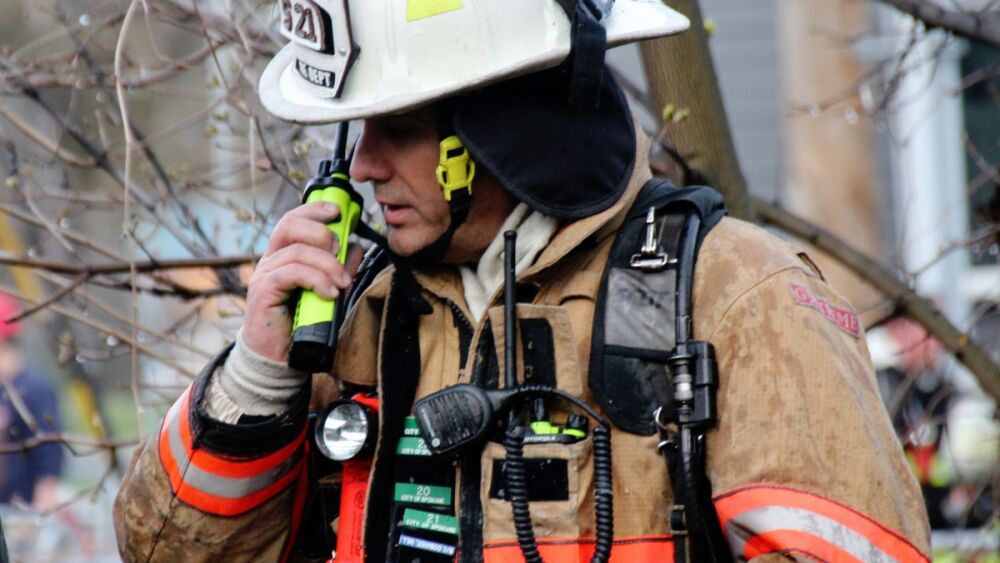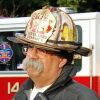I’ll start out with a disclosure: I have a significant history of over-communicating. Not only in my day-to-day life, social media and with my family, but on the fireground as well. Just say’n.
I grew up as a young firefighter at a time when getting some of the bosses to communicate was like pulling teeth. Maybe this was rooted in the “information is power” idea, I don’t know, but reports on the fireground were either non-existent or like kids screaming at a Justin Bieber concert. The heavier the fire conditions, the louder the screamer on the radio. And there were those who you heard screaming on the radio, and when you arrived, you wondered if you were on the same scene.
Of course, back then, the rare “portable” radio weighed about 10 lbs., the “low-band” antenna stood about 2 feet tall, and general reliability was questionable. Keep in mind also that most crews operating inside didn’t have a radio. Things changed.
Increased chatter
As portable radios became more available, there was more communication on the fireground, but the problem was kind of like finding Willy Wonka’s Golden Ticket. There was plenty of chatter on the air (all those tickets) but little of it really mattered – and when something important was transmitted (an actual Golden Ticket!), it got lost amid all the other radio traffic.
The behavior was pretty much to talk about and describe by radio everything you saw or did – kind of like Harry Caray calling a ball game (Google him!). Of course, we didn’t really know then that too much chatter was a problem. Like many things, we just accepted the chatter issues as just part of the job.
Radio discipline
Many areas have changed their approach to radio communications since then.
I too have been forced to change, but some days I still feel like saying a bit more on the radio than is needed. Rest assured, I have all kinds of loving “friends” who will remind me of this. I also go back and listen to radio recordings of every working incident to which I respond as a self-critique. At the very young age of 65, I continue to learn. I also listen to a lot of radio traffic, both locally as well as nationwide, with every incident serving as an opportunity to learn more.
More often than not these days, radio on the fireground is much more disciplined and purpose-driven than ever before. Why? Because chiefs have decided how they want the fireground to operate and they want information communicated. Leadership.
Of course, some areas and/or departments still don’t get it, with endless chatter as if it’s a phone conversation – no discipline, ignoring assignments, firefighters talking on top of each other, companies talking on “their own” channels and all the other stuff we’ve been told to NOT do by those who investigate firefighter line-of-duty deaths.
Muscle memory
See, it’s not really about BS chatter during a BS run; it’s more about how we operate day to day that will automatically dictate our actions at a working incident. It’s how we operate based upon our policies. It’s how we prepare for the mayday. My boss at Loveland-Symmes calls it – and reminds us about the critical importance of – muscle memory.
Muscle memory involves establishing a specific motor task in our memory through training and repetition. In other words, it is reorganizing and rewiring ourselves to make our brain connection stronger, faster and more accurate to the desired goal. When we practice a new and improved way of doing something over and over and over again, we are creating a new plan in our brains for our improved or changed behavior and actions. The more you do something right, the more it becomes a habit and the way to do it.
On the other hand, the more we do something wrong – without training (initial and continued), correction or consequence – the more it seems to be the way to do it. And until repetitive training, based upon your fire department’s policy, corrects your behavior – or a supervisor or peer corrects your behavior – you will continue down that “path of wrong that seems OK” until something really bad happens.
Example: Driving the apparatus. You have a dusty old policy, but no one follows it, and no one enforces it. So you drive like a lunatic, and the more you continue to drive like that, the more you feel confident doing so. After all, your training has failed (or was nonexistent), your lieutenant doesn’t want you to not like them, and besides, you love driving that way. Until one day, you make CNN following a crash that you wish never occurred.
On the flip side, with the right muscle memory, if you start driving like a lunatic, your training kicks in, you remember “that incident” you learned about and you de-lunacize your actions. Or your peer or supervisor reminds you to not be a lunatic, and you calm down – an action that avoids ruining your and other lives. We are talking about changing habits that need to be changed.
Operational radio traffic tips
So after listening to some local and distant radio chatter recently, I wanted to transmit (see what I did there?!) some thoughts to you related to response, arrival and operational radio traffic.
1. Determine your policies. Decide what’s best for the organization and the people we take care of, commit these items to writing in the form of policies, and make them your “how to train and behave” guide. And look, I don’t care if you call them SOPs, SOGs or ABCs, put in writing the important tasks you generally expect to be performed. I say “generally” because of course company officers may have to veer from policy when they have a good reason to do so.
2. Speak like you want to be heard. This applies to dispatchers, too. Don’t mumble. Don’t talk sexy. Talk loud and clear as if you were dictating information to someone who is going to transfer $1 million into your personal bank account – loud and clear!
3. Transit “real” responding messages. In other words, transmit that you are responding when you really are responding with your crew and know where you are going, not when you are just starting to think about it.
4. Report your arrival. And ta-dah! NOW is the time to start talking on the radio. Paint a picture the scene conditions:
- Building description: Size, height, type
- Conditions: Smoke, fire
- Incident action plan: Who you want to do what
- Strategy: Offensive or defensive
- Command: Establish and name command (e.g., if the fire is on Maple Avenue, then Maple Avenue Command might be a good name for it).
- 360 report: Cover how many floors from the rear (vs. alpha, bravo or delta), life/rescue issues, type of basement, hazards or problems that may not be seen from the front (the swimming pool or the Tiger King’s cages, things like that) and anything command needs to know that may change the operational plan.
- Arrival: Upon arrival, simply state whether you are on scene, staged, glad to be here or whatever your local term is, and allow command to direct you to your assignment or follow your predetermined company assignments. If the first-due engine is expected to do stuff, just do it; same with the first-due truck. Ever heard this? “Engine 99 approaching the scene, chief, we are requesting an assignment” is bothering the incident commander. If you are arriving, say that and then either do your assignment or stage. ICs, pay attention so when companies arrive, you can use them or hold them. It should sound like this: “Engine 99 on scene,” followed by “OK engine 99, stage until further” or “Engine 99 on scene,” followed by “Engine 99, bring in a second supply line and feed Ladder 98, then send your staffing to alpha.”
- Assignment: When a company is given an assignment, briefly repeat it back (for clarification) and then go do it. And when THAT is done, tell command (or your division boss) that you have done THAT and then sit tight. DO NOT go somewhere else and do something else. Let command or your division boss tell you where your highly respected expertise and your super-human firefighters may be needed next.
So when DO you talk on the radio?
Your department’s policy should provide you with that direction, and hopefully, it’s the SAME policy used by the companies and departments with which you normally respond. But just in case your policy doesn’t cover this, here are a few thoughts on when to talk on the radio once on scene, including the fact that during a working incident, normally only bad news or problems should be radio-worthy:
- No water
- Equipment issues
- Accountability problems
- Incomplete/unable to complete assignment
- Firefighter issues and/or injury
- More help or resources needed
- Something that stops the fire attack/incident plan from moving forward
- Any surprises that command won’t be happy about
Those are all radio-worthy.
What’s not radio worthy?
There’s no need to say any of this on the radio:
- Engine 35 approaching the scene. What do you need us to do, chief?
- Ladder 9 is on the roof getting ready to vent the roof as ordered.
- Charlie to command: Things are looking great back here now, chief.
- Safety to command: No one hurt yet.
- Tanker 3 to command: Returning from the fill site with a full tank of water.
That’s not to say that if command asks you the above questions, you would certainly answer them. But to get on the radio with so-called “good news” is simply not needed, as much as I thought it was for many, many years.
Silence is generally pretty golden when we operate on the fireground. We have to be prepared for the mayday. That is why our discipline is so critical – for that really bad day. And every fire incident has the mayday potential, and we must act like it.
Loud and clear
There is much more that can be discussed on this subject, but the goal is to provide a start to areas or departments that really have no policy, no order or no system to communicate effectively.
Hopefully my message is loud, clear and as brief as possible.
[Read next: A firefighter’s guide to communicating via two-way portable radios]














